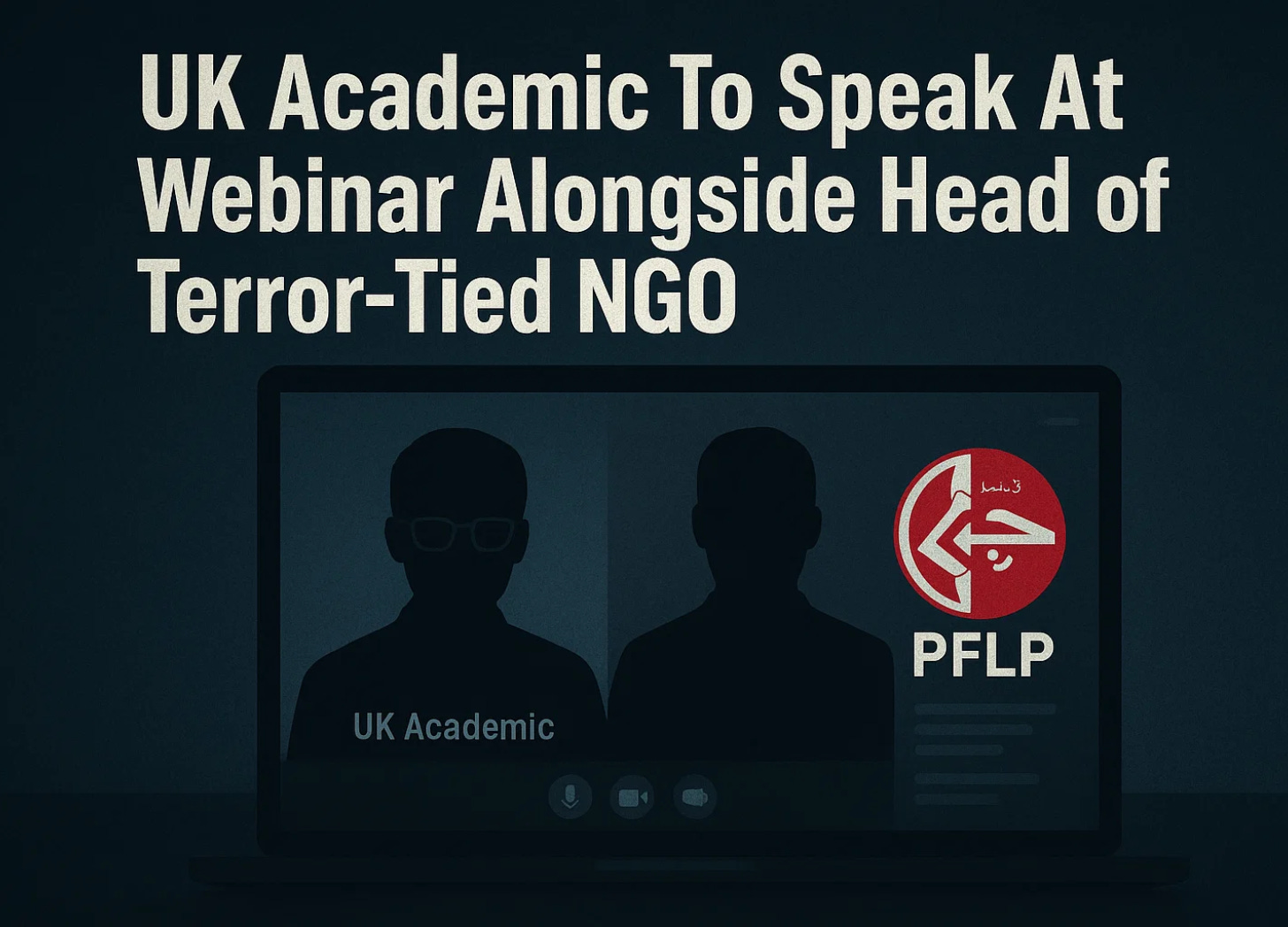UK Academic To Speak At Webinar Alongside Head of Terror-Tied NGO
Nimer Sultany, Reader in Public Law at SOAS University of London, is set to speak at a webinar alongside Raji Sourani—head of a terror-tied NGO who served prison time for his membership in the PFLP
Dr. Nimer Sultany, a Reader in Public Law at SOAS University of London and Chair of the Centre for Palestine Studies, is set to be a featured speaker at the virtual launch of a new report titled "Voices of the Genocide: Israel's Ongoing Genocide on the Gaza Strip" by the Palestinian Centre for Human Rights (PCHR).
The event raises significant concerns as PCHR has been extensively documented by NGO Monitor as having ties to the U.S.-designated terrorist organization, the Popular Front for the Liberation of Palestine (PFLP).
The report launch will feature Raji Sourani, PCHR's General Director, who has a documented history of connections to the PFLP terror group. According to NGO Monitor's detailed report, Sourani served a three-year prison sentence from 1979-1982 after being convicted by an Israeli court of membership in the PFLP. He was prohibited from leaving Israel from 1977 to 1990 and was denied a U.S. entry visa in 2012.
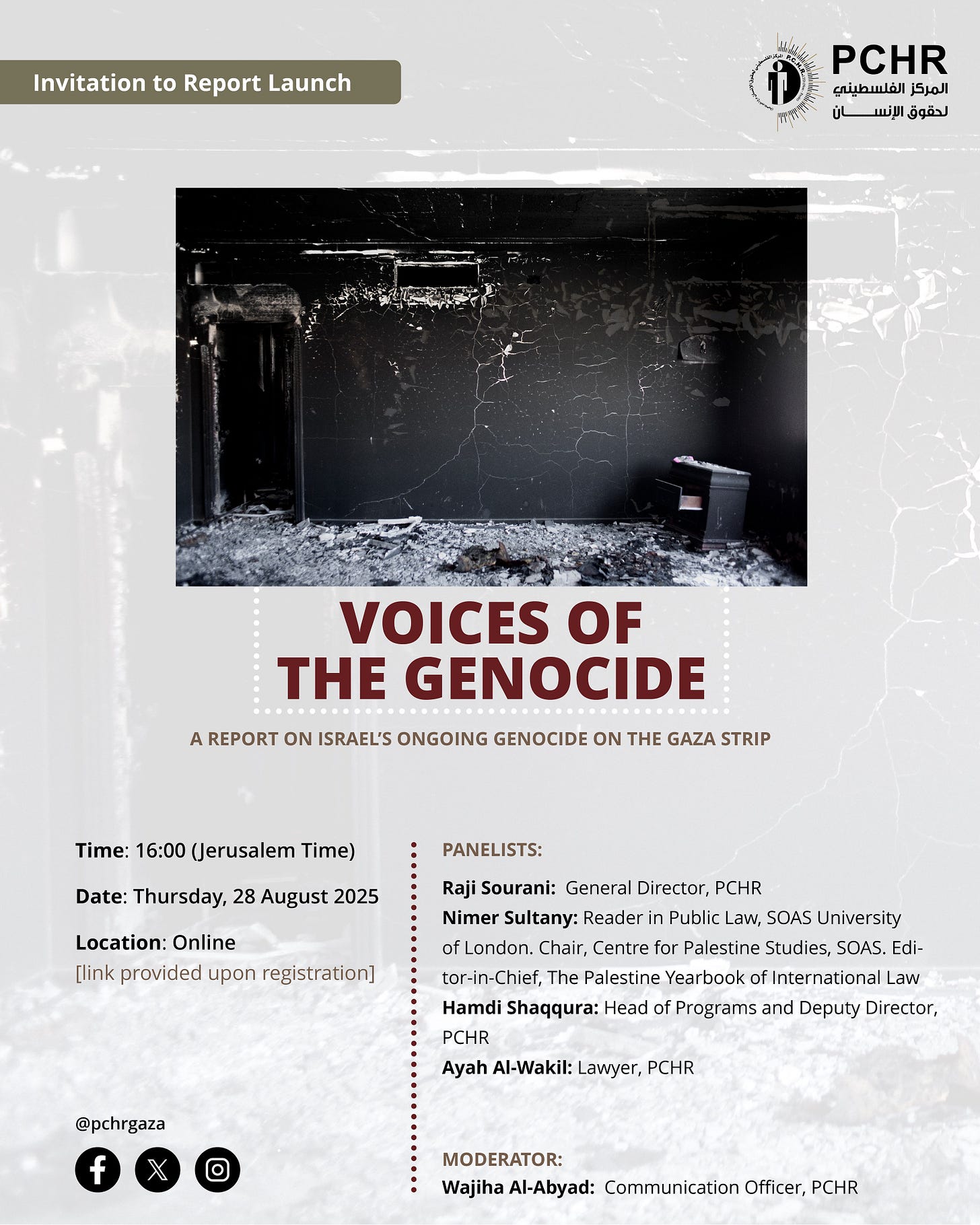
Continued Terror Connections
Despite claims in a 1995 Washington Report article that Sourani was no longer affiliated with the PFLP, evidence suggests ongoing connections. In February 2014, the PFLP organized a ceremony in Gaza honoring Sourani for winning the "Alternative Nobel Prize." During this ceremony, attended by PFLP Political Bureau member Rabah Muhanna, Sourani made explicit statements about his continued pride in his PFLP membership.
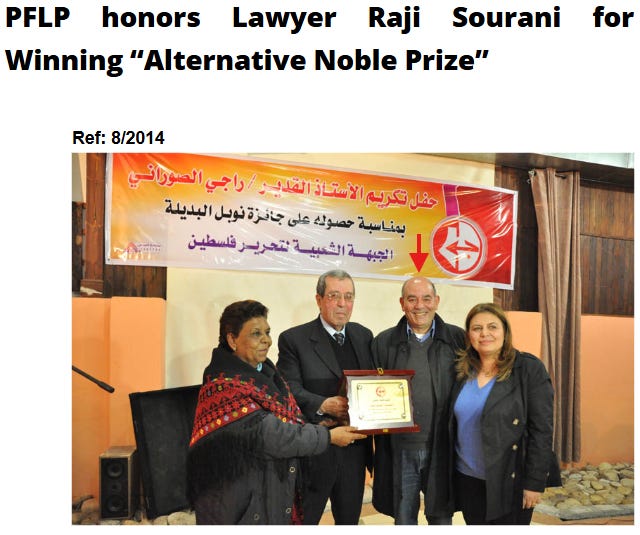
"I was in the ranks of the Popular Front, and there were comrades who taught us with their own hands," Sourani stated at the ceremony. "We don't apologize and don't regret our past, we are proud that once we were members of this organization and we fought in its ranks."
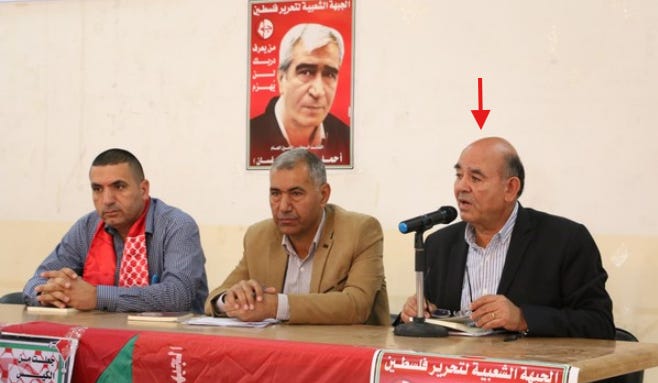
The PCHR director has maintained relationships with Hamas leadership as well, including meetings with Hamas Political Bureau officials Musa Abu Marzouk and Khaled Mashal in 2011 to discuss forming a "national unity government" in Gaza. In 2014, Sourani led a "human rights delegation" meeting with former Hamas leader Ismail Haniyeh
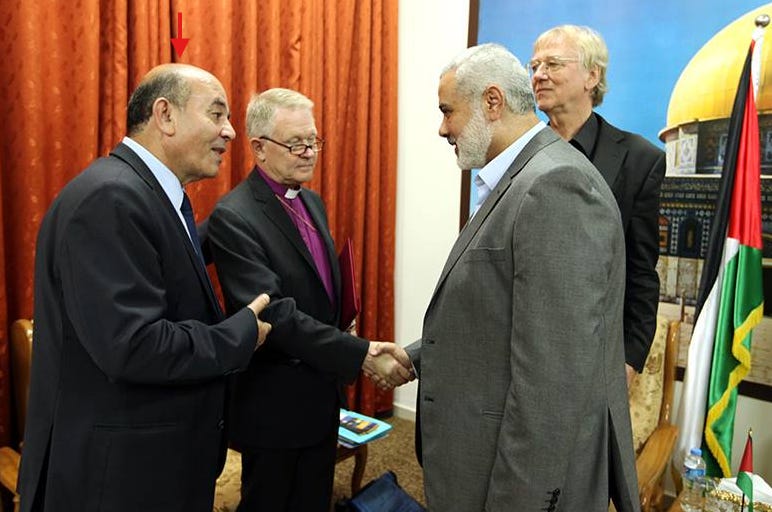
Pattern of PFLP Connections
NGO Monitor's research reveals that multiple PCHR staff members have documented ties to the PFLP. Jaber Wishah, who served as PCHR's Deputy Chairman of the Board of Directors until 2017, was identified in Israeli media as "the head of the military wing of the Popular Front for the Liberation of Palestine in Gaza" in 1985. He was convicted of holding a leading position in a terrorist organization and spent 15 years in Israeli prison from 1985-1999.
Other PCHR staff members with documented PFLP connections include Bassam al-Aqraa, former head of PCHR's Training Unit, who was referred to as a "companion of the Popular Front for the Liberation of Palestine" in PFLP publications following his death in 2018.
Taxpayer-Funded Institution
The involvement of SOAS, a publicly funded institution, in this event raises questions about the appropriate use of government resources. According to SOAS's public financial statements for 2023-2024, the university received £8.9 million in funding council grants, including £0.7 million from the Office for Students and £5.7 million from Research England.
These grants originate from government bodies that allocate taxpayer money. The Office for Students distributes funding based on guidance from the Department for Education, while Research England operates within UKRI (UK Research and Innovation), which invests public funds in research activities across British universities.
The Legitimization of a Terror-Tied Organization
The participation of an academic from a publicly funded institution in an event organized by PCHR represents a troubling legitimization of an organization with documented connections to designated terrorist groups.
By sharing a platform with Sourani and lending his academic credentials to PCHR's report launch, Dr. Sultany risks providing respectability to an organization that has maintained ties to the PFLP terror group. This event also raises serious questions about the appropriate use of government resources when academics at state-funded institutions choose to associate with terror-connected organizations



